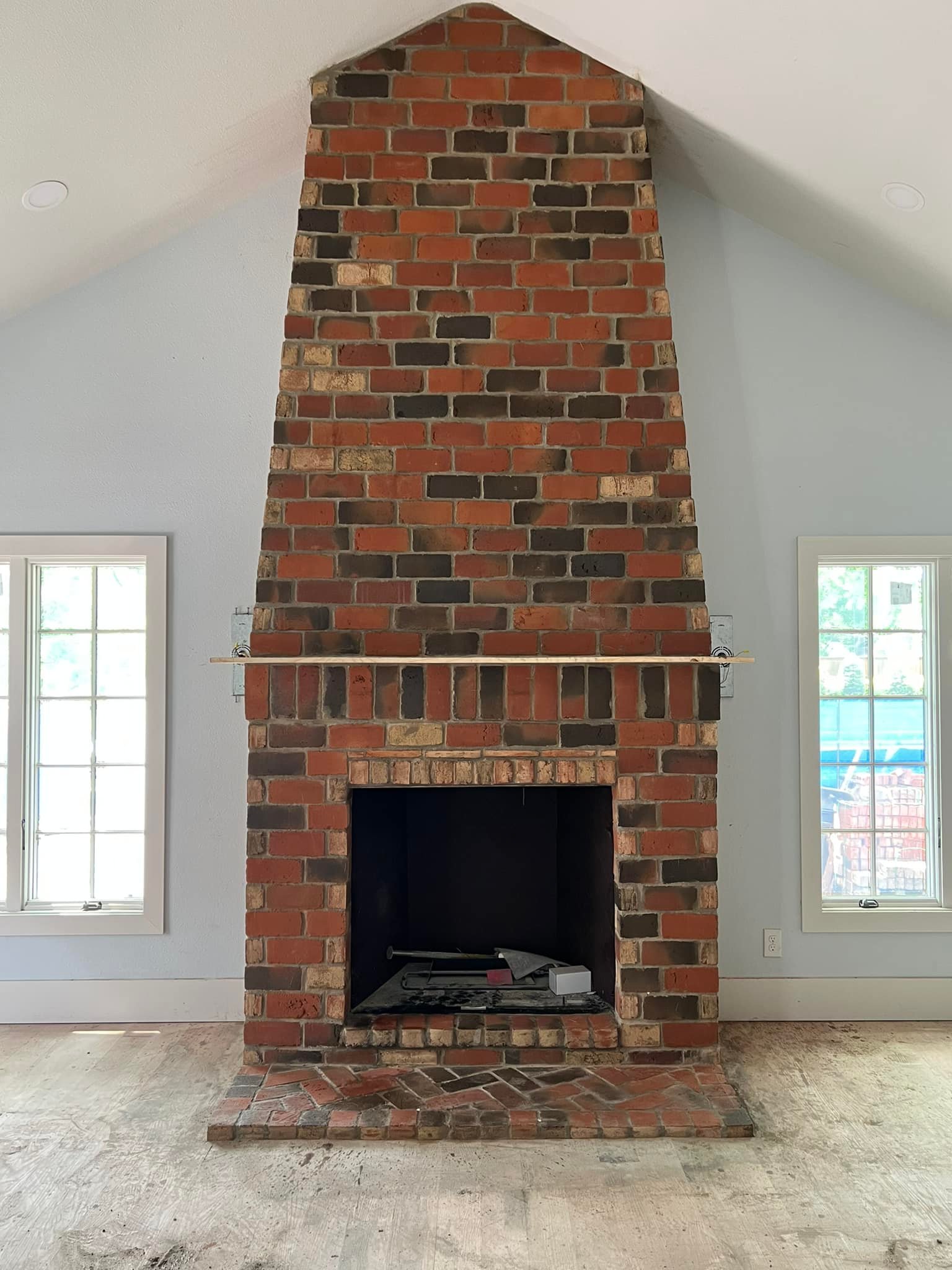
Masonry Services
Brick Masonry
Brick masonry is a time-tested construction technique that involves the use of bricks, typically made from clay or concrete, to create durable and visually appealing structures. These rectangular units are stacked and bonded together using mortar, forming walls, facades, and other architectural elements. Brick masonry offers a range of benefits, including excellent strength, fire resistance, and low maintenance. The inherent thermal mass of bricks helps regulate indoor temperatures, contributing to energy efficiency. The versatility of bricks allows for various patterns and designs, adding character to buildings. The enduring popularity of brick masonry can be attributed to its longevity and timeless aesthetic appeal. Whether used in traditional or modern architecture, brick masonry continues to be a popular choice for residential, commercial, and industrial construction, providing both structural integrity and aesthetic charm to a wide range of buildings. Our brickwork showcases the skill and precision of our dedicated craftsmen. These artisans bring brick masonry to life, transforming them into enduring structures that stand the test of time. Our brick services services encompass a wide range of brick installation, from timeless brick facades to intricate brickwork for fireplaces and pavers.
Natural Stone
Stone masonry is an ancient and enduring craft that involves the construction of structures using natural stone as the primary building material. This skilled trade dates back thousands of years, with examples of impressive stone structures found in various cultures around the world. The process of stone masonry begins with the careful selection of suitable stones, considering factors such as size, shape, and texture. Masons then shape the stones using traditional hand tools or modern machinery, depending on the project’s scale and requirements. Stonework services encompass a range of activities related to the use of stone in construction, landscaping, and design. Our stonework involves working with various types of natural or artificial stones to create facades, retaining walls, features, or artistic elements.
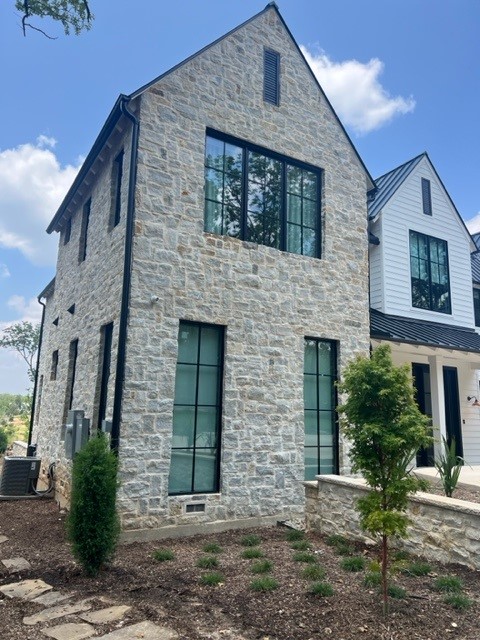
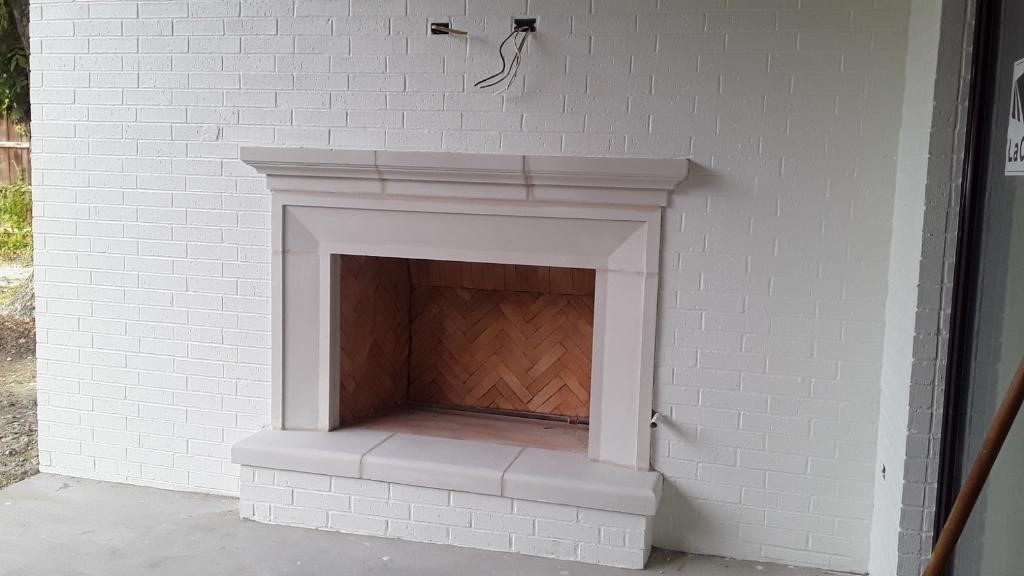
Cast Stone Masonry
Cast stone masonry is a construction technique that involves the use of a man-made stone material to replicate the appearance of natural cut stones. This method offers versatility in design, as cast stone can be molded into various shapes and sizes, allowing for the creation of intricate architectural details. The process typically involves mixing crushed natural stones or aggregates with a binding agent, such as cement, to form a dense and durable material. Once mixed, the cast stone is tamped into molds that have been designed to achieve the desired shape and texture. After curing, the resulting pieces can be used for a wide range of applications in construction, including facades, balustrades, window surrounds, and other ornamental elements. Cast stone masonry provides a cost-effective alternative to natural stone, offering similar aesthetics while allowing for greater design flexibility and ease of installation. This method has become popular in both residential and commercial construction projects, contributing to the aesthetic appeal and structural integrity of buildings.
Stucco
Stucco is a traditional and versatile exterior finish widely employed in construction for its durability and aesthetic appeal. Composed of cement, sand, and lime, stucco is applied in layers over a framework, typically made of metal lath or wood, forming a hard, protective shell for buildings. It is known for its ability to adapt to various architectural styles, offering a textured and smooth finish that can be tinted to achieve a wide range of colors. Stucco is valued not only for its visual appeal but also for its resistance to fire, insects, and harsh weather conditions. Its application process involves the successive layering of the stucco mixture, allowing it to cure and harden, resulting in a durable and low-maintenance exterior. Stucco can be used on various substrates, including wood, concrete, and masonry, making it a versatile choice for residential, commercial, and institutional structures. While providing a classic appearance, stucco also contributes to energy efficiency by helping regulate indoor temperatures. The widespread use of stucco in construction attests to its enduring popularity and enduring functionality.
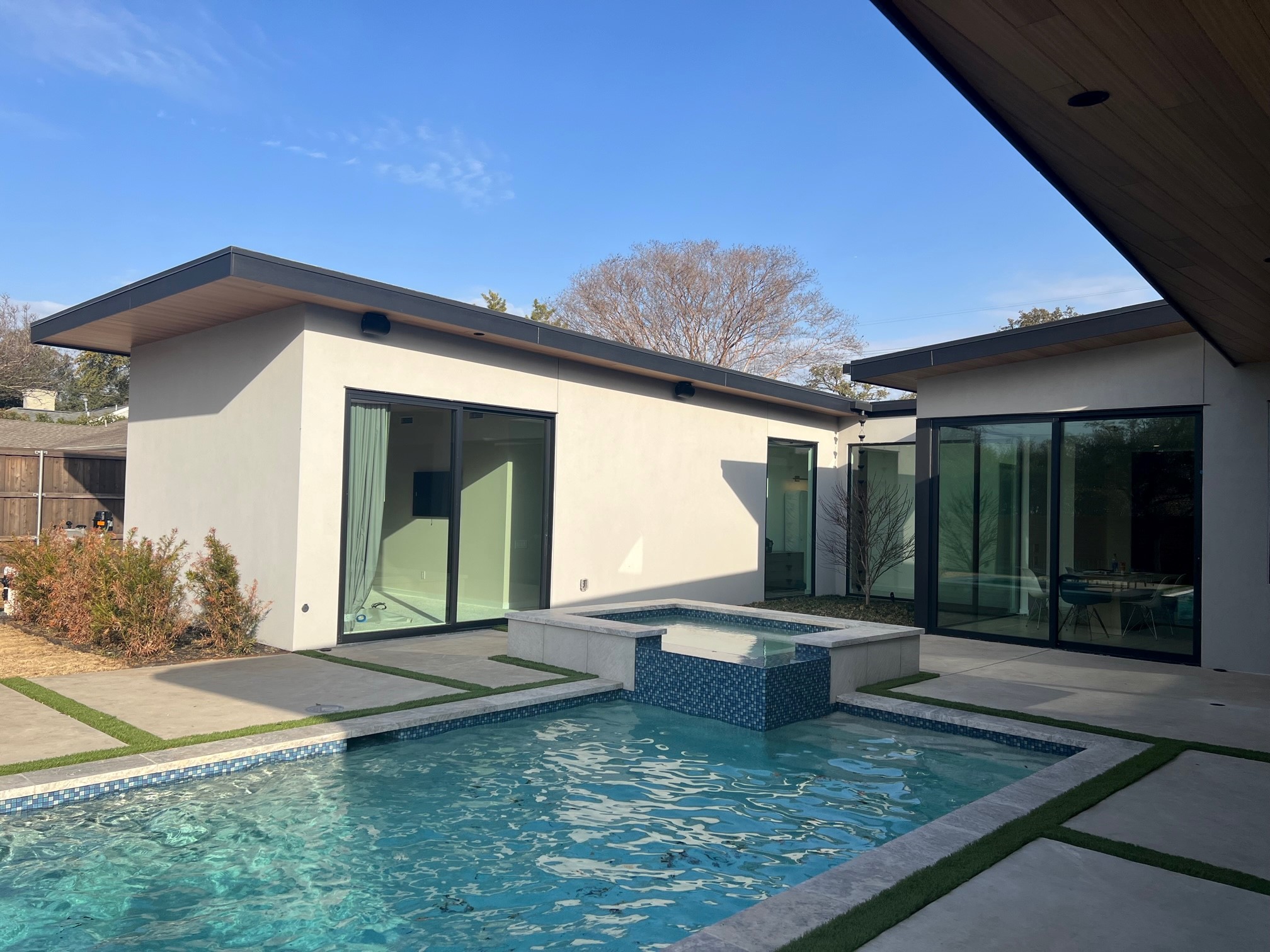
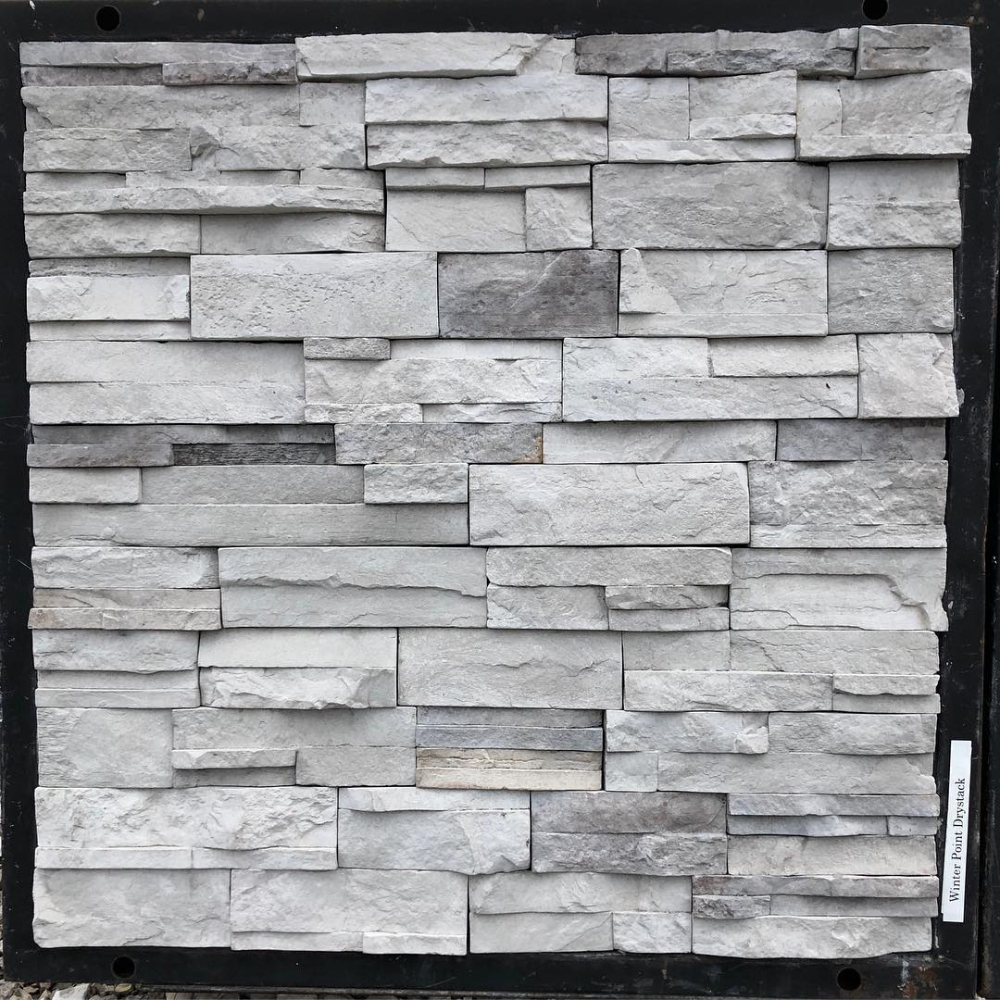
Thin Veneer
Thin veneer masonry is a popular and versatile construction technique that combines the aesthetic appeal of natural stone with the practicality of a lightweight and easy-to-install material. Unlike traditional full-bed masonry, thin veneer consists of thin slices of natural stone, typically ranging from 3/4 inch to 1 1/4 inches in thickness. This reduced thickness not only makes it lighter and easier to handle but also allows for a more efficient use of resources. Thin veneer masonry can be applied to a variety of surfaces, including wood, metal, or concrete, making it suitable for both interior and exterior applications. Its installation process involves attaching the thin stone pieces to a supporting structure using mortar or adhesive, creating a seamless and visually stunning finish that mimics the appearance of traditional masonry. This technique offers a cost-effective solution for achieving the timeless elegance of natural stone without the need for heavy structural support. Thin veneer masonry is a favored choice in contemporary construction projects where both aesthetics and efficiency are paramount.
E.I.F.S.
EIFS, or Exterior Insulation and Finish System, is a popular cladding system used in the construction industry to enhance the energy efficiency and aesthetics of buildings. This system typically consists of a layer of insulating foam board attached to the exterior wall surface, followed by a reinforced mesh, and then a synthetic stucco-like finish. EIFS serves as both insulation and an exterior finish, helping to improve a building’s thermal performance by reducing heat transfer. The lightweight nature of EIFS makes it relatively easy to install, and it can be adapted to various architectural styles. Additionally, EIFS offers design flexibility as it can be colored and textured to mimic a wide range of traditional and contemporary finishes. Shapes can also be cut and molded to mimic cast stone or create aesthetic reveals in the wall system. Proper installation is crucial to prevent moisture infiltration, which can lead to structural issues. When installed correctly, EIFS provides an effective solution for energy-efficient and visually appealing building exteriors, making it a popular choice in both residential and commercial construction projects.
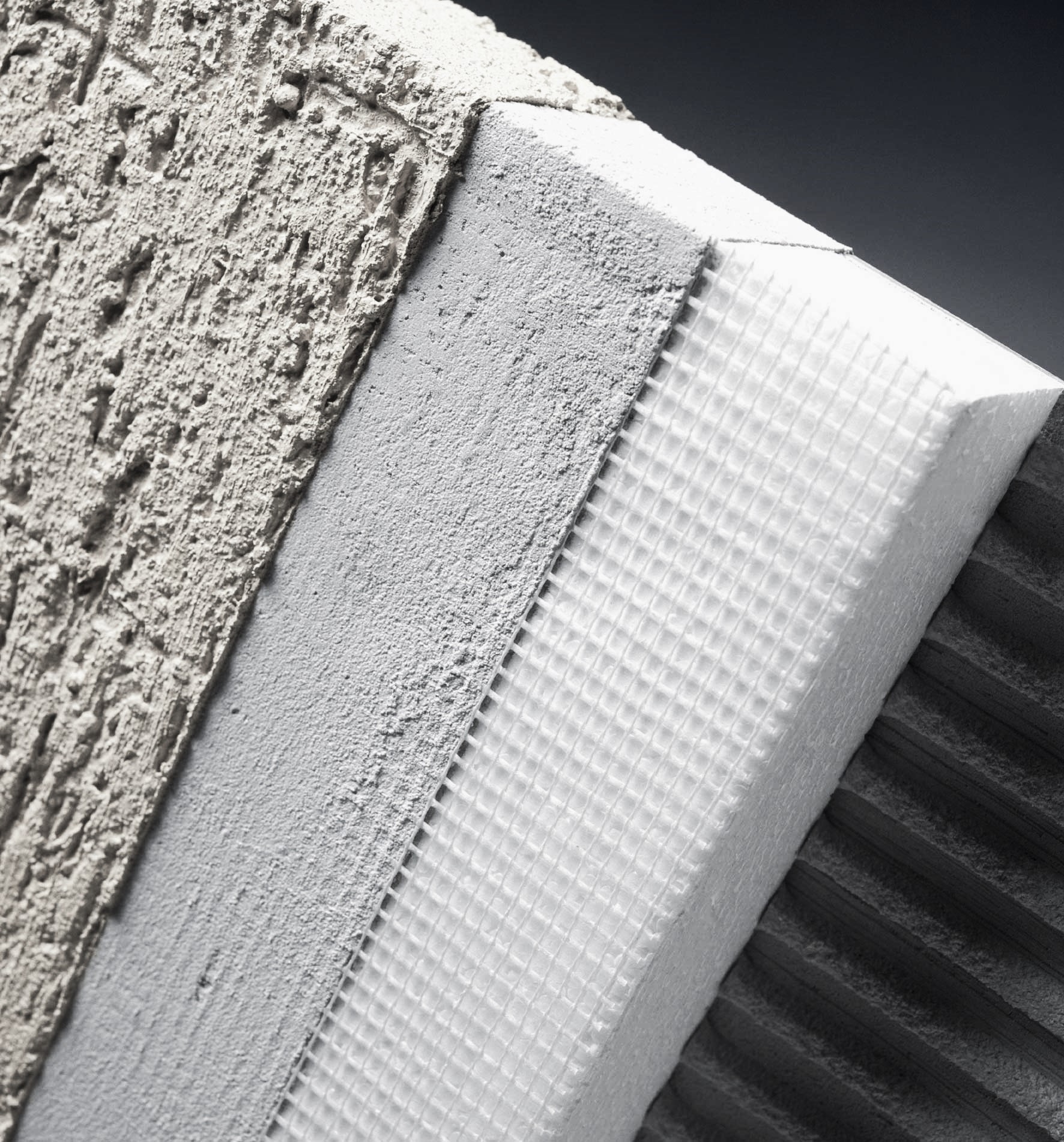
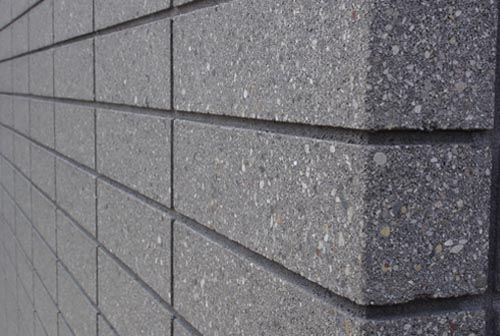
CMU Structural Block
Concrete Masonry Units (CMU), commonly known as concrete blocks or cinder blocks, are a fundamental building material widely used in construction. These pre-manufactured blocks are composed of concrete, aggregates, and sometimes other materials like fly ash. CMUs come in various sizes, shapes, and densities, allowing for versatility in construction projects. The blocks are stacked and bonded together using mortar to create load-bearing walls, partitions, or other structural elements. CMU masonry provides durability, fire resistance, and sound insulation, making it suitable for both residential and commercial buildings. The hollow cores within some CMUs can be filled with reinforcing materials or insulation to enhance structural strength and energy efficiency. Additionally, the exterior faces of CMUs can be finished with coatings, paints, or veneers to improve aesthetics. The simplicity of installation, cost-effectiveness, and adaptability make CMU masonry a popular choice for a wide range of construction applications.


